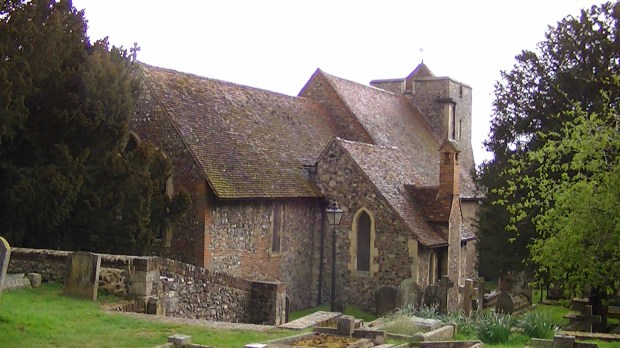Lenten Campaign 2025
This content is free of charge, as are all our articles.
Support us with a donation that is tax-deductible and enable us to continue to reach millions of readers.
St. Martin’s church in Canterbury is not only the first church ever founded in England, or only the oldest parish church in continuous use. It is also the oldest church in the English-speaking world.
The church was, at first, the personal chapel of Queen Bertha, one of the most influential figures in the history of Christianity in Anglo-Saxon England. In fact, she is a saint venerated in the Catholic, Eastern Orthodox, and Anglican churches, referred to as either St. Bertha or St. Aldeberge.
Bertha was a Frankish princess, born circa 564 in Neustria (France), the great-granddaughter of St. Clotilde, who contributed to the spread of Christianity in Western Europe by her role in the conversion of her husband, the Frankish King Clovis I, founder of the Merovingian dynasty and first king of the Franks, from Arian Christianity to Catholicism.

Read more:
Lindisfarne: One of Britain’s oldest churches is discovered on the Holy Island
Bertha would follow the steps of her great-grandmother. Being a princess, she married the pagan King Aethelbert of Kent. Aethelbert allowed her to continue to practice her religion, and renovated for her an already existing church, built in the late Roman period, that had fallen into disuse. According to St. Bede’s Ecclesiastical History of the English People, this church was originally dedicated to St. Martin of Tours, a city close enough to Bertha’s natal Neustria.
A few years after Bertha’s arrival in England, Pope Gregory the Great sent a mission led by Augustine of Canterbury to restore Christianity to England. The year was 596. The mission got to England in 597 and was quite successful, mostly because of the favorable influence of Bertha: it is said that without her support and King Aethelbert’s good will, monastic settlements in that region of England would have not been possible.
As Augustine of Canterbury arrived in England, he used Bertha’s chapel of St. Martin as his own mission headquarters. Soon after his arrival, King Aethelbert himself was baptized there.

